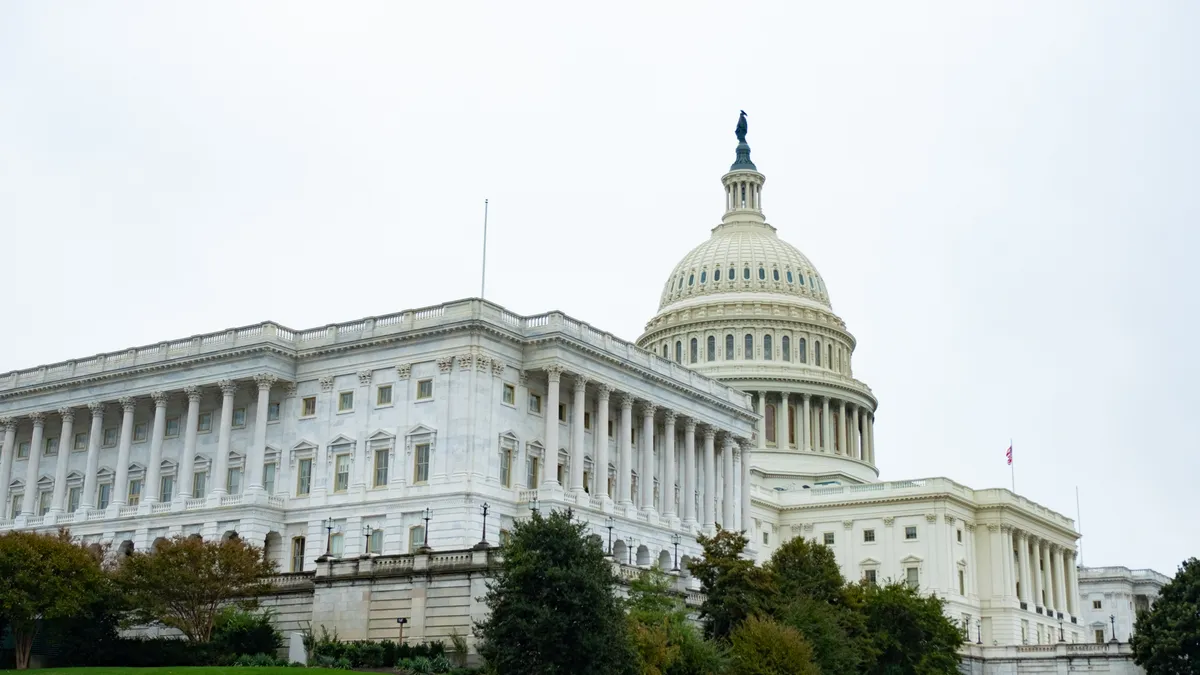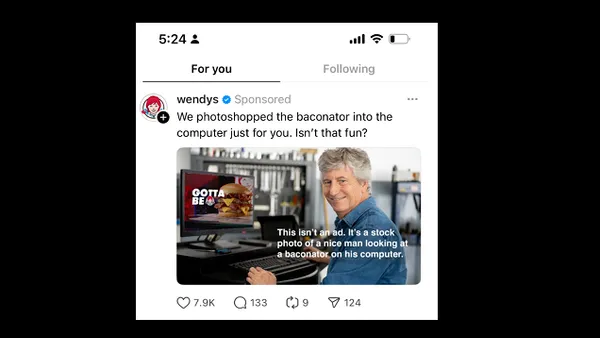Dive Brief:
- Brands have hit the brakes on marketing efforts large and small after a mob incited by President Donald Trump stormed the nation's capital Wednesday to protest his election loss, according to multiple media reports.
- Announcements slated for Thursday from at least three major companies have been postponed in reaction to ongoing volatility in Washington, DC, Ad Age reported. More regular activities, including paid social advertising and TV campaigns on news networks, have also been paused by brands, Ad Age, Digiday and Business Insider said.
- Brands and their agencies partners are better prepared for this moment after weathering the pandemic and mass civil unrest last year, media buyers told Digiday. But total silence carries its own risks, as marketers have recently been criticized for taking brand safety measures too far.
Dive Insight:
Brands were put through a gauntlet in 2020, with many having to pause or cancel campaigns at the last minute in reaction to the novel coronavirus, protests for racial justice and a deeply acrimonious presidential election. The new year is so far bringing little reprieve, as a Trump-incited mob storming the Capitol to protest the president's election loss represents a significant test of the fortitude of U.S. democracy and another media minefield for marketers to navigate. Trump on Thursday committed to "an orderly transition of power" come Jan. 20, while still qualifying that he disagreed with the outcome of the election.
As chaos continues to roil Washington, marketers appear to be adopting an air of caution, freezing activity on channels like paid social and TV where ads might appear alongside distressing news developments, while also holding off on big news announcements. Most reports suggest the quiet period for brands could last between 24-48 hours, but might stretch on longer if unrest persists.
Moving quickly to pull consumer-facing campaigns and communications reinforces how brand safety continues to be a top item for companies looking to preserve a positive public image and sidestep controversy. The role of the brand safety officer has become more common, and nonprofit industry organizations like the Brand Safety Institute (BSI) have gained traction as societal volatility becomes the norm. BSI graduated its inaugural class of Certified Brand Safety Officers last May, with blue-chip marketers, publishers and agencies like Bank of America, GroupM and NBCUniversal among the ranks.
But some critics think brand safety measures can go too far, with advertisers ducking media outlets covering critical stories and ultimately hurting publisher revenue. Vice Media Group last summer called on brands and agencies to reassess their brand safety strategies to support coverage of current events, including contentious topics. The call-to-action arose in the wake of protests for racial justice after the police killing of George Floyd, as many marketers added words like "Black Lives Matter," "Protest" and even "Black people" to their keyword blocklists. Marsha Cooke, senior vice president of impact at Vice Media Group, has referred to this phenomenon as "the brand-safety paradox," where advertisers are so stringent in where they appear that they end up eschewing quality journalism altogether.
"As we learned throughout 2020, overblocking and pausing campaigns during situations, like a democratic crisis, can cause more harm than not," Ben Plomion, chief growth officer at GumGum, said over email. "Quality journalism relies on advertising revenue and brands need to be front and center with their consumers throughout challenging times."
The issue could be replicated around the storming of the Capitol and with ongoing concerns around a peaceful transition of power. A handful of brands directly reacted to the riots Wednesday to mixed effect. Bagel Bites tweeted and then quickly deleted a message reading "all this for someone that hates them." in reference to the Trump supporters. A handful of CEOs, including Jamie Dimon of JPMorgan Chase and Marc Benioff, condemned the rioting, per The Wall Street Journal.
Even as consumers increasingly expect brands to tackle complex societal issues, many companies have learned the hard way that this desire stretches only so far. Gap was excoriated on social media for a tweet around the November election that pleaded for red and blue voters to set aside their differences and come together. The message featured a half-red, half-blue hoodie getting zipped up in a show of unity between the political parties — a sentiment that clearly has not manifested in the U.S.















